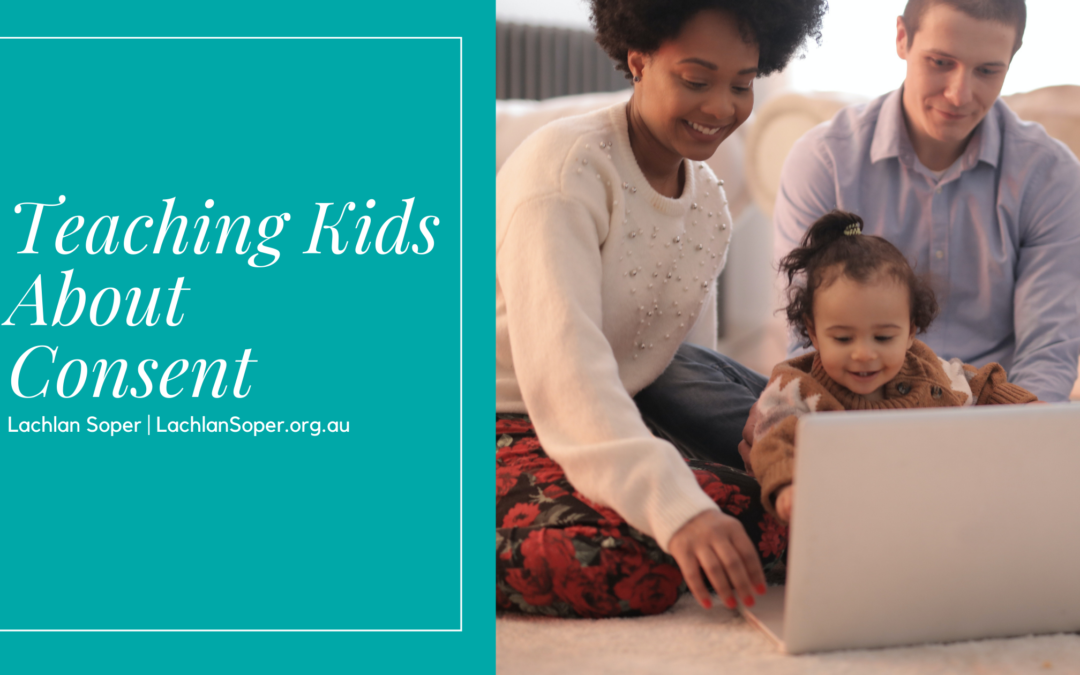Consent is first and foremost about giving permission for something to happen or agreeing to something. Society has become wiser over recent decades about boundaries – child protection and adult relationships are just two such areas. Teaching our children that their feelings and bodies are important, and not for other people to use or manipulate is important. Conversations about consent are really important to have some years before your children are thinking about sexual consent. If they have a framework around consent, in many areas of life, they are better prepared to naturally think and talk about sexual consent. Also, sadly as the statistics show, a not insignificant portion of children are sexually abused, and having a framework for consent, being emotionally mature enough to talk about it, equips our children to better say “no” if anything is crossing into an area sexually where they are not comfortable.
Teach children that “no” doesn’t mean necessarily that they aren’t liked or valued by the person saying “no”, they simply may not want to do something (like saying no to a playdate, a game or a hug goodbye). This may apply to someone saying “no” to your child’s request, or your child saying “no” to someone else. In some ways this may be teaching children how to handle rejection – a skill of lifelong value.
As children enter their teenage years, if you watch movies together as a family, they are an opportunity to discuss whether consent was sought or given in certain situations.
We should teach our children that their body is theirs and nobody else’s. They can say “yes” or “no” to a request (or implied request) and it is important that they are not coerced into doing something they are not comfortable doing (whether it is by a child, boyfriend / girlfriend, or adult). Some examples are:
- If they don’t want to go around to another child’s place when invited or play a game with them, that is okay. They may like to say “not right now, how about another time”, or “I’d rather not play that at the moment”, or “how about … [something else]”. It’s about communicating their desire not to do something, not being coerced into it if not comfortable, and perhaps offering an alternative.
- If they are teens and their boyfriend / girlfriend tries to kiss them (or something else), it’s important that they have the emotional capacity, from some months or years before this moment, to choose to accept the offer / advance, or to politely decline. It’s really important that they only give themselves away when they are ready and have phrases such as “thanks, but I’m not ready yet” in their vocabulary. To say “no” does not equate to them being a mean person. There is a rather funny, but helpful video on sexual consent using a cup of tea as an analogy, which may be worth watching with older teens https://www.youtube.com/watch?v=pZwvrxVavnQ
- If they don’t feel comfortable with a particular adult (or any adult outside their nuclear family) giving them a hug, let them know that that feeling is okay and to perhaps say to the person going to give them a hug “I’d prefer to shake hands” and to offer out their handshake simultaneously. This is a type of conversation that can begin in primary school, years before the idea of sexual consent may be relevant. It’s important that our children know that it’s okay to say “no” to an authority figure, adult or other child when it comes to their bodies and feelings. Just because someone has authority in other areas in our children’s lives, our children need to know that this person does not have authority over our children’s bodies and emotions.

